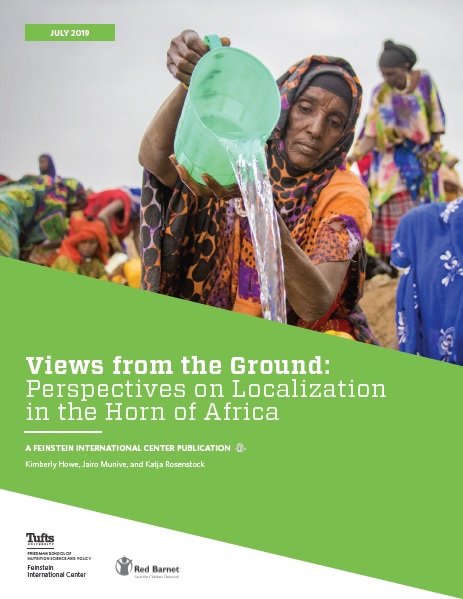“As local as possible, as international as necessary” has become the slogan of one of the latest trends in humanitarianism—localization. Since the World Humanitarian Summit of 2016, the localization agenda has been gaining momentum. While there are no internationally agreed upon definitions of localization, it generally refers to putting local actors at the center of the humanitarian system.
While humanitarian actors assume that there are benefits to a localized response over those spearheaded by international agencies, it has not been well studied. Most reports are based on anecdotal evidence, describe lessons learned through the study individual projects, or are aspirational and normative in tone. Across publications, there is insufficient empirical evidence to determine the best way for the international humanitarian architecture to support local actors. The authors place the voices of local actors at the center of this research project, acknowledging that most literature favors international actors when studying localization of humanitarian action.
This study interrogates the assumptions that underpin a localized response and identifies the factors that enable and hinder local actors in providing a high-quality, principled, and effective response in three countries in the Horn of Africa: Kenya, Somalia/Somaliland, and South Sudan.







